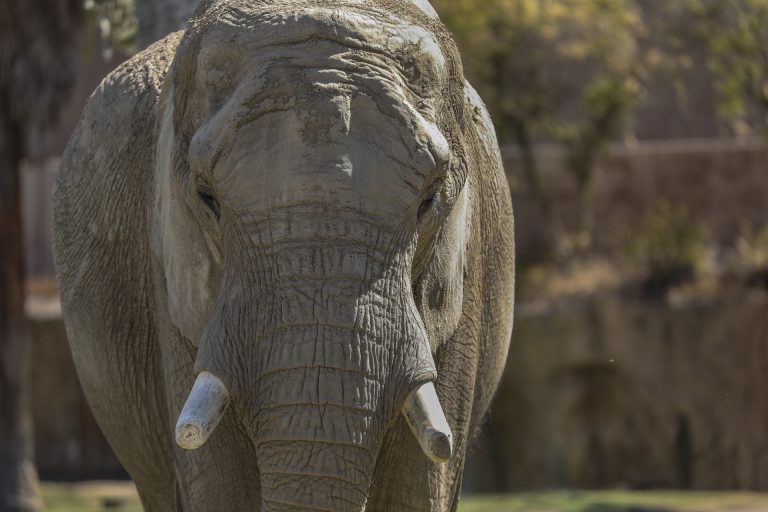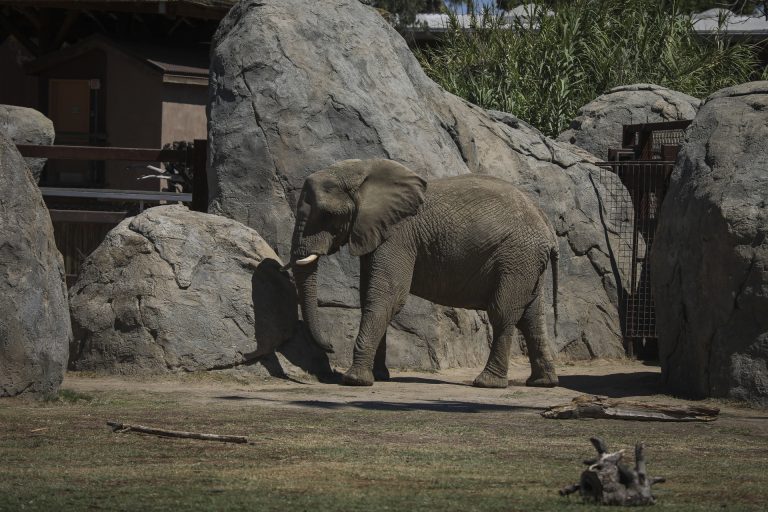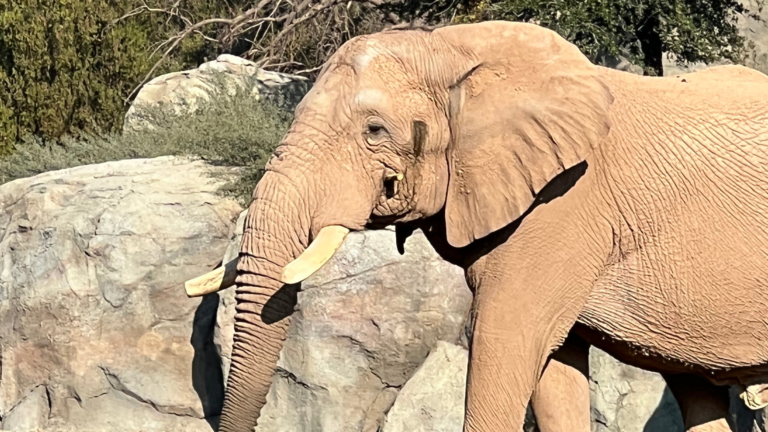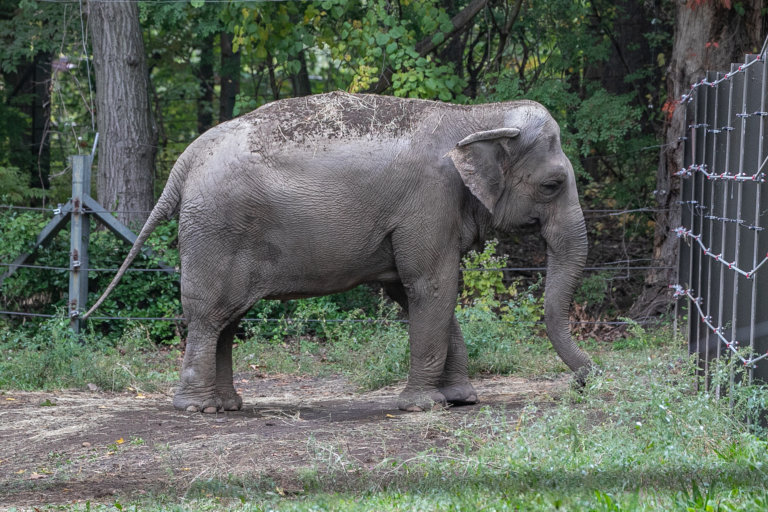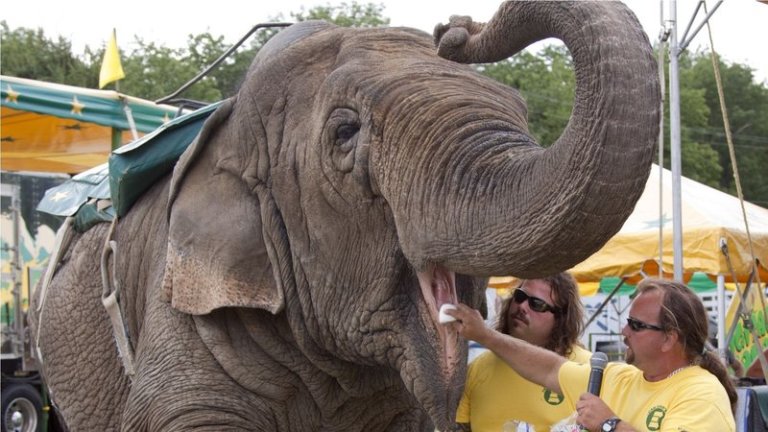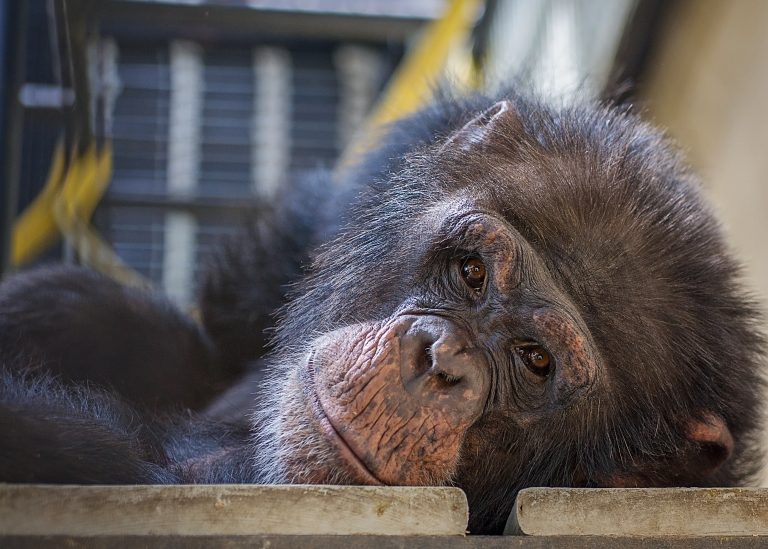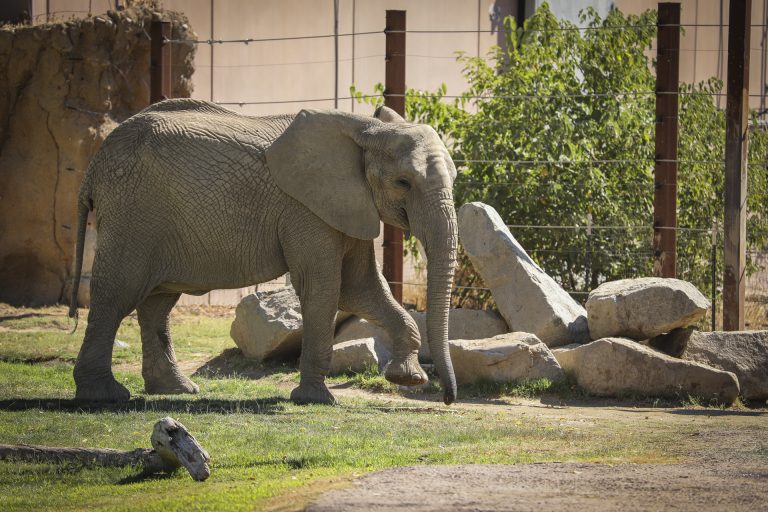

Amahle, Nolwazi, and Mabu
Nolwazi is a female African elephant believed to be 27 years old. She was born in Hlane National Park in eSwatini (formerly known as Swaziland).
Amahle is a female African elephant believed to be 12 years old. She is Nolwazi’s daughter and was also born in Hlane National Park.
Nolwazi and Amahle were among 39 elephants who roamed approximately 12,000 acres of the 54,000-acre park. In 2016, they and 15 other elephants, most of them breeding-age females, were taken from their natural habitat and imported to US zoos–a highly controversial arrangement which Charles Siebert detailed in a 2019 investigative essay for The New York Times Magazine (“Zoos Called It a ‘Rescue.’ But Are the Elephants Really Better Off?”).
As Siebert wrote:
Conservation managers in Swaziland determined that the increasing number of elephants in two of the country’s three Big Game Parks (B.G.P.) reserves were overtaxing the already drought-stricken landscape and posing a threat to the planned growth of their populations of both black and white rhinos. In response, the founder and executive director of B.G.P., Ted Reilly, decided to reduce the elephant population. Relocating them elsewhere in Africa was deemed, in the wording of the exhibit, ‘not feasible,’ and thus Reilly declared that they would have to be slaughtered if alternate homes couldn’t be found.
Three US zoos–the Dallas Zoo in Texas, the Sedgwick County Zoo in Wichita, Kansas, and the Henry Doorly Zoo and Aquarium in Omaha, Nebraska–then agreed to donate $450,000 to Big Game Parks as part of a relocation deal, with B.G.P. ignoring offers to give refuge to the elephants in Africa, according to Siebert.
In 2016 the US Fish & Wildlife Service approved the zoos’ request despite global public outcry, including from 80 respected elephant and conservation expertsaround the world and in the face of a lawsuit filed in the US by Friends of Animals to try to stop the importation. Nolwazi, Amahle, and the other elephants were sedated, crated, and loaded onto a cargo plane and split up across the three zoos. Nolwazi and Amahle spent two years in captivity in the Dallas Zoo before they were transferred to the Fresno Chaffee Zoo, where they remain today. The zoo’s deputy director has said the zoo plans to use them for breeding: “We have been looking to grow our African elephant herd. Having Nolwazi and Amahle join enables us to do that.”
Mabu was born in 1990 in the Kruger National Park in Kenya. At some point between his birth and 2003, he was transported to the Mkhaya Game Reserve in eSwatini. In 2003, he and ten other elephants were imported to the US despite public outcry and legal opposition. Mabu was sent to the San Diego Zoo Safari Park where, between 2006 and 2011, he fathered ten offspring with the female elephants held in captivity with him.
In 2012, Mabu, two of his young sons, and two adult female elephants were transferred to the Reid Park Zoo in Tucson, AZ to establish a new group of captive elephants there. In 2014 an elephant he was held captive with gave birth to an elephant he fathered. In 2016 he was transferred back to San Diego to again breed with the adult females at that zoo. In 2018, two elephants he fathered were born in San Diego. That same year he was transferred back to the Reid Park Zoo to again breed with the female elephants held captive there. Shortly after, his eleven-year-old son died in Tucson. In 2020 an elephant he fathered was born at the Reid Park Zoo. According to the zoo, Mabu formed close bonds with his offspring at the Reid Park Zoo; the elephants he lived with missed him when he would be separated from him while being crate trained before one of his transports.
In November of 2022, upon the recommendation of the AZA, he was transferred to the Fresno Chaffee Zoo to breed with Nolwazi and Amahle.
Vusmusi (also known as Moose and Musi) is an 18-year-old male African elephant. He was born in the San Diego Zoo Safari Park to an elephant named Ndulamitsi, who was pregnant with him when she was imported to the US from eSwatini in 2003, also despite global public outcry and with zoo and eSwatini officials making the same claims about the elephants needing to be killed otherwise.
Vusmusi was transferred from San Diego to the Fresno Chaffee Zoo in 2015. In 2017, after he cracked and broke his tusks numerous times, the zoo had metal covers made for them, which other zoos have also done. “He had a history of being tough on his tusks, and he would break them on things,” Fresno Chaffee Zoo’s curator for elephants told the Sacramento Bee in 2017. As Keith Lindsay writes in his affidavit (but the zoo has not acknowledged in news stories touting the metal covers), this behavior is “an unnatural behavior indicative of stress and/or boredom” (elephants living freely in their natural habitats use their tusks “to pry bark off trees or dig for roots, and in social encounters as an instrument of display or as a weapon”). The zoo planned to use Vusmusi for breeding but were not successful in their efforts. Upon the recommendation of the AZA, they transferred him back to San Diego. He is now out of the jurisdiction of this lawsuit but we’ll continue to fight for his freedom.
Jake Davis
The NhRP attorney who will argue Nolwazi, Amahle, and Mabu’s case
Jake is the lead attorney for the NhRP’s California litigation. Previously, Jake worked in federal court (under the Honorable S. James Otero of the United States District Court for the Central District of California), for the U.S. government (at the United States Attorney’s Office for the Southern District of California), and in private practice (Squire Patton Boggs). He holds a J.D. from Loyola Law School, Los Angeles, and a B.A. from Emory University in Atlanta, Georgia. He is a proud human to a rescued pitbull dog named Archie.
Who's joined us in the fight
Scientific support
“The NhRP’s litigation to free the Fresno elephants is the first of its kind on the West Coast and has the support of world-renowned elephant experts including Dr. Bob Jacobs, who has studied the severe negative neurological impacts of captivity on elephants.”
Donate to support the fight
Donate online
Mail a check
Planned giving
Create a fundraiser
Highlights from the fight
Media coverage
A timeline of Amahle, Nolwazi, and Mabu’s case
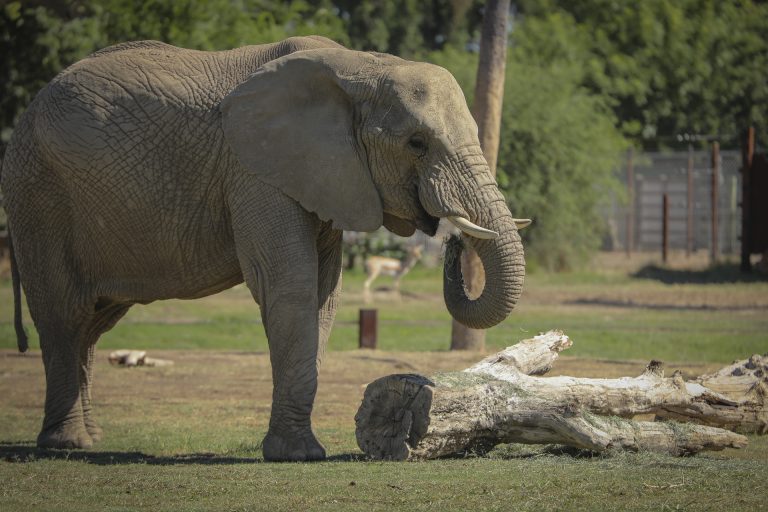
2.14.23
The NhRP files a new habeas corpus petition in the Fifth District Court of Appeal, demanding Amahle, Nolwazi, and Mabu’s right to liberty and their release to a sanctuary or a rewilding facility. The petition details how the Fresno Superior Court was wrong to deny the NhRP’s first petition on the grounds that the petition didn’t allege that the elephants are held in state custody: under longstanding California law, you don’t have to be in state custody in order to challenge your imprisonment. “The practical effect of the Superior Court’s decision prohibits privately detained humans from availing themselves of habeas corpus,” the NhRP writes. Read our press release here.
11.15.22
Judge Harrell denies the elephants’ habeas corpus petition on the grounds that the petition does not allege, as the Court believes it must, that the elephants are held in “state custody” (due to, for example, a prison sentence imposed by a court). We announce we will challenge this decision and will share our next legal steps in the coming weeks. We also announce our plans to take on Mabu as a client.
11.12.22
The NhRP learns the Fresno Chaffee Zoo has transferred Vusmusi back to the San Diego Safari Park and brought in another elephant, Mabu, to be used for breeding upon the recommendation of the Association of Zoos & Aquariums (AZA). We post a short statement on social media.
11.1.22
The NhRP files a Peremptory Challenge to Judge Orozco presiding over the case.
11.3.22
The NhRP is notified we’ve been assigned to Judge Arlan L. Harrell for all purposes.
